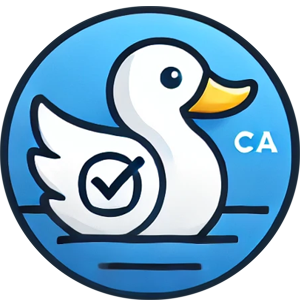Legal Education and Public Awareness
by ChatGPT-4o
Laws are everywhere: in our homes, workplaces, streets, and even online. But for many, the legal system is a confusing labyrinth of rules, rights, and paperwork.
Legal education and public awareness are about making the law accessible—helping Canadians know where they stand, what to do when trouble strikes, and how to assert their rights. When people are informed, justice isn’t just a courtroom ideal—it’s a lived reality.
Legal knowledge is power. And in a democracy, that power belongs to everyone.
1. The Landscape: Where Are We Now?
- Gaps in Understanding: Many Canadians don’t know their legal rights, how the system works, or where to get help.
- Schools and Youth: Some provinces teach civics and legal basics, but coverage is patchy and often outdated.
- Community Programs: Legal clinics, libraries, and advocacy groups run workshops, hotlines, and information campaigns.
- Digital Resources: More legal information is available online, but digital divides and complex language still block access.
2. Who’s Most at Risk?
- Youth and newcomers: May lack exposure to Canadian laws and the justice system.
- Marginalized groups: Systemic barriers mean many don’t know their rights or how to assert them.
- Low-income individuals: May not have access to legal help or education programs.
- Seniors and people with disabilities: Face unique challenges in understanding, navigating, or exercising their legal rights.
3. Challenges and Stress Points
- Legalese and Complexity: Jargon, dense text, and intimidating processes make law inaccessible.
- Limited Outreach: Not all regions have active public legal education programs, especially rural or remote areas.
- Changing Laws: The legal landscape shifts—keeping up is tough for the public and for educators.
- Trust Issues: Mistrust of the legal system or fear of authority can keep people from seeking help or asking questions.
4. Solutions and New Ideas
- Plain Language Initiatives: Rewrite legal information in simple, clear language and multiple languages.
- School-Based Programs: Make civics, legal rights, and dispute resolution core parts of curricula.
- Community Partnerships: Expand workshops, clinics, and pop-up events to where people live and gather.
- Leverage Technology: Create interactive websites, apps, and chatbots to answer common legal questions.
- Peer Educators: Train volunteers, youth, and community leaders to share legal knowledge in trusted spaces.
5. Community and Individual Action
- Learn and Share: Attend a workshop, read up on rights, or help a neighbour understand a legal issue.
- Support Legal Clinics: Volunteer or donate to organizations delivering public legal education.
- Encourage Schools: Advocate for more legal education in local schools.
- Challenge Misinformation: Correct myths or falsehoods about the law in your circles.
- Promote Access: Help make legal information available in accessible formats and languages.
Where Do We Go From Here? (A Call to Action)
- Policymakers and educators: Will you make legal literacy a core priority for all Canadians?
- Legal professionals and advocates: How can you share your expertise more widely and simply?
- Everyone: What legal question have you always wondered about—but never dared to ask?
A just society starts with an informed public.
Let’s make legal knowledge common sense—and common ground.
“Knowing your rights shouldn’t require a law degree—it should be as easy as reading this article.”
Join the Conversation Below!
Share your experiences, questions, or tips about legal education and public awareness.
Every question and every answer makes Canada’s justice system stronger and more open for all.
